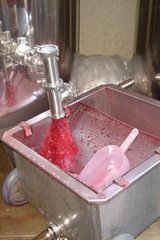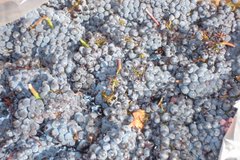It has been one busy summer but now that the grape harvest has begun we are back to work and rejuvenated with ideas for the Illinois Winemakers Alliance! We have spent the summer researching wine legislation in Illinois and the United States. We have specifically been meeting and collaborating on ways to keep the public and wine consumers in ‘the know’ with wine legislation news. One way to do that was to create a group called ‘Friends of Illinois Wineries’. Our friends will not only get special treatment at participating Illinois wineries but will also be kept up to date with news and mailings. Here’s some more information on ‘Friends of Illinois Wineries’:
Sponsored by the Illinois Winemakers Alliance, the ‘Friends of Illinois Wineries’ program will help support efforts to minimize the cost of wine to consumers by protecting each winery’s right to ship directly to the retailer and to you.
Sponsored by the Illinois Winemakers Alliance, the ‘Friends of Illinois Wineries’ program will help support efforts to minimize the cost of wine to consumers by protecting each winery’s right to ship directly to the retailer and to you.
A $10 donation gives you special access to promotional offers at participating Illinois wineries!
With your donation you will receive a card to present at each winery to redeem discounts, wine tastings and other special offers.
Participating Wineries Include:
Lynfred Winery
10% off the purchase of wine bottles or cases
Glunz Family Winery & Cellars
10% off the purchase of wine bottles or cases
Massbach Ridge Winery
20% off first bottle of wine purchased
Hidden Lake Winery
10% off the purchase of wine bottles or cases
Illinois River Winery
10% off the purchase of any wine bottles, cases, or merchandise
Galena Cellars Vineyard & Winery
10% off the purchase of wine bottles or cases
August Hill Winery
Two Tastings for the price of one, plus 5% off wine purchased
Kensington’s Wine Auctions
One free tasting of four Illinois wines of the customer’s choice
Tasting deVine (Wheaton)
10% off the purchase of wine bottles or cases
Tasting deVine (Naperville)
10% off the purchase of wine bottles or cases
To Become a Friend of Illinois Wineries Click Here
Hidden Lake Winery
10% off the purchase of wine bottles or cases
Illinois River Winery
10% off the purchase of any wine bottles, cases, or merchandise
Galena Cellars Vineyard & Winery
10% off the purchase of wine bottles or cases
August Hill Winery
Two Tastings for the price of one, plus 5% off wine purchased
Kensington’s Wine Auctions
One free tasting of four Illinois wines of the customer’s choice
Tasting deVine (Wheaton)
10% off the purchase of wine bottles or cases
Tasting deVine (Naperville)
10% off the purchase of wine bottles or cases
To Become a Friend of Illinois Wineries Click Here












